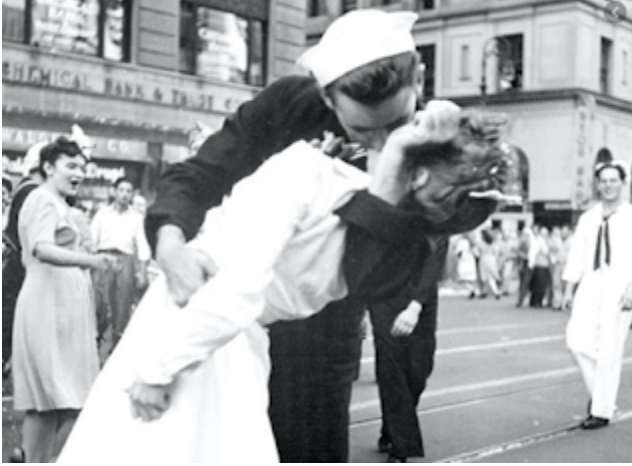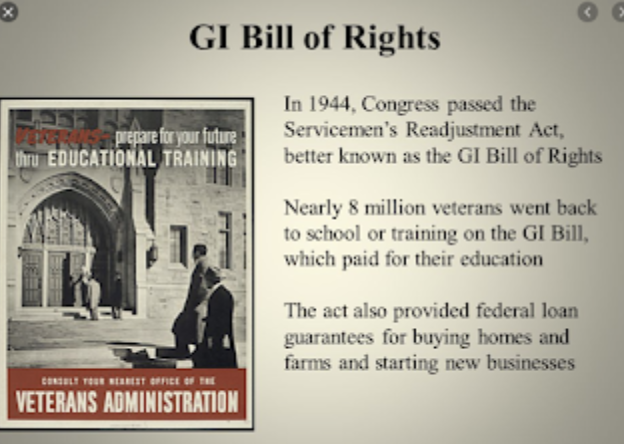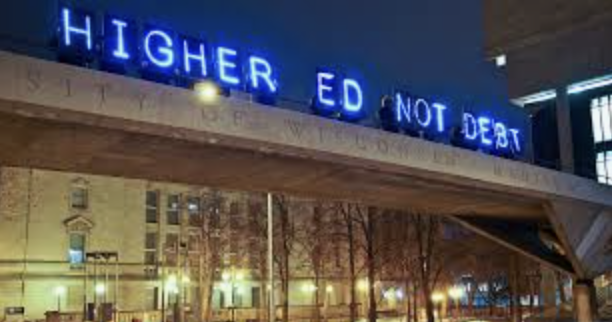“Free college? What a crazy idea!”
If you live in the U.S., you have almost certainly heard people saying that. You may even have said it yourself.
“Hey, nobody gave me free college.”
“Hey, I had to pay for my own college. Why should they get it for free?”
Well …
Shortly after the turn of the 20th century — 110-115 years ago — the fairly standard level of education for many people was finishing the eighth grade. They learned to read, write (penmanship, not creative writing) and do simple mathematics.
Then they went on to apprenticeships to learn trades, or clerkships to become attorneys, bankers or other such white-collar jobs.
Eighth grade was enough for most people. My grandfather Paul Kindinger (b. 1895) had an eighth grade education and he was a police officer for 20 years and was police chief of his small town for 12 years from just before Pearl Harbor into the early ’50s.
His eighth-grade education was free, as free as anything paid for by tax receipts. And for men like him, there were plenty of jobs, many of them blue collar for those who had strong backs and solid work ethics.

The next generation was the one Tom Brokaw called the Greatest, the one that came of age during the Great Depression and then fought the Second World War. By that time, more and more young adults had high school diplomas, and employers were looking more for those who made it through 12 grades.
There were still jobs for those who didn’t get that far, but as long as a student was willing to work, that valuable high school diploma was essentially free.
If there’s a lesson here, it’s that as the educational levels required for a reasonable working-class lifestyle increased, educational opportunities were made available to those who wanted them — for free.
World War II changed things even more. The G.I. Bill of Rights rewarded servicemen for putting their lives on the line by financing their education through college.

It essentially created the great Middle Class of the 1950s and ’60s. That and the fact that for about 20 years, we manufactured things for the rest of the world as they recovered from the destruction of the war.
More than anything else, that’s why we had an impossibly good economy from about 1945-65. During that time. most jobs started requiring high school diplomas.
At that point, things were still in sync. You could get a decent job and have a decent career if you took advantage of a free education.
But nothing good lasts forever. College enrollment increased because being a student meant a 2-S deferment insured that a young man wouldn’t be drafted and sent to Vietnam. In the same time frame, millions of skilled blue-collar jobs went away when companies realized that could make far bigger profits in the Third World.
So with more people going to college and fewer jobs available, employers did what came naturally to them. They raised qualification levels for their jobs. All of a sudden, jobs that once went to high school graduates required college degrees.
So just as the minimum wage keeps falling further and further behind the cost of living, free public education becomes less meaningful every year.
The great irony is that the best public college system in the country was free until a fellow named Ronald Reagan came along. The University of California system offered free tuition for those it admitted until the late 1960s when Reagan came to power by demonizing college protesters.
And as with many other things Reagan affected, America hasn’t been the same since.
Kids now finish college with tens of thousands of dollars in debt from the loans they had to take out to pay for higher education. In some cases, they are paying back loans into their 40s, making it more difficult to take any chances in their lives.
They can’t start their own businesses, or buy homes, or any other things that would make it more difficult to have the income to repay their loans. Post-Reagan America isn’t about freedom except for the very wealthy. It’s about knowing your place and toeing the line.
My wife and I were well-off enough that we provided four years of college education for our two children and enabled them to graduate with no debt. Both of them were able to pursue careers they chose without having to worry about paying back student loans.
My son has been out of school for 15 years now, and he has friends from his graduating class who are still saddled with student-loan debt.
Strangely enough, it seems like much of the objection to free college tuition is pure jealousy.
“I had to pay for college, so why shouldn’t you?”
We could do it, and in a positive way. Tie free tuition to post-college service, either military or civilian. You want four years of tuition to become a teacher? Agree to teach four years in a poor neighborhood.
This way we got two benefits — more educated people and people who gain more understanding, more empathy for how people live.
Seems fairly simple to me.

